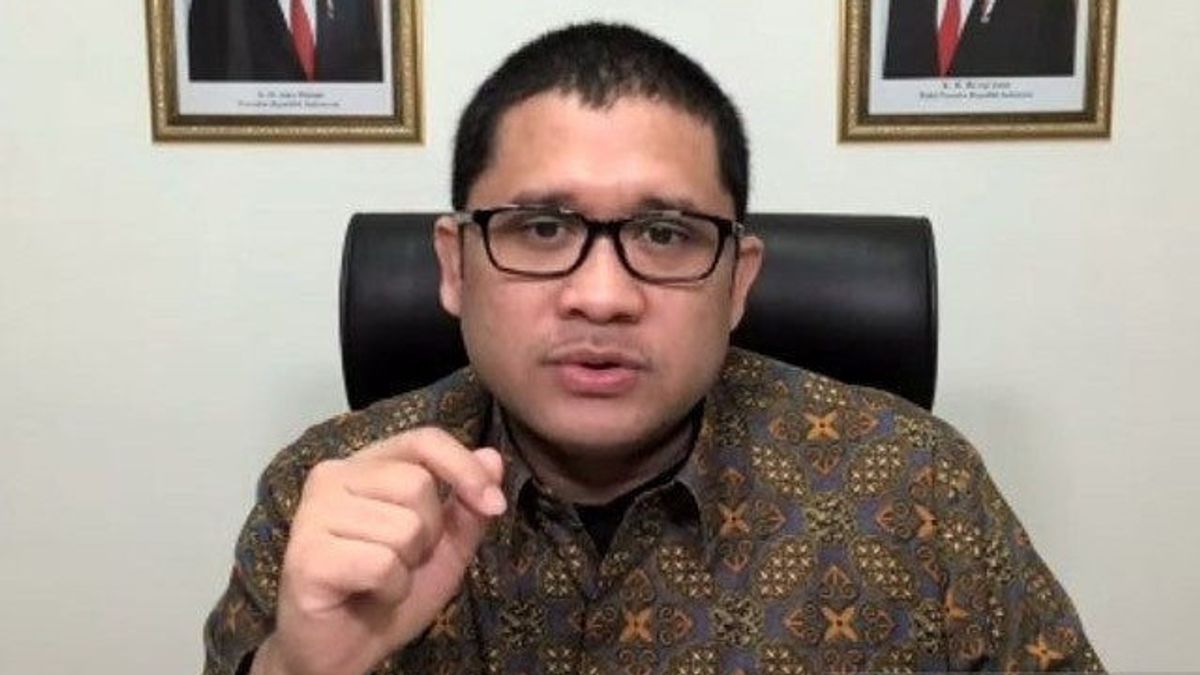JAKARTA - Head of the Fiscal Policy Agency of the Ministry of Finance (Kemenkeu) Febrio Kacaribu said the reduction in the poverty rate was a positive thing, indicating it was effective and necessary to continue the function of the State Budget as a shock absorber.
"The poverty rate continues to have a downward trend amid pressures on global commodity prices, especially food and energy prices, which have an impact on domestic prices and people's purchasing power," Febrio said in his official statement, quoted from Antara, Tuesday, July 19.
He explained that the economic recovery had a positive impact on improving people's welfare. This is reflected in Indonesia's poverty rate as of March 2022, which again declined to 9.54 percent, from 9.71 percent in September 2021.
Poverty rates are declining even though Indonesia's poverty line threshold is increasing as various economic risks increase. The poverty line threshold in March 2022 increased by 4 percent to Rp505,469 from the previous Rp486,168 in September 2021.
Although the poverty line has increased, Indonesia's poverty rate can still be reduced. A World Bank study in June 2022 stated that the increase in domestic commodity prices, triggered by movements in global commodity prices, is expected to increase the poverty rate by 0.2 percentage points.
"The PC-PEN program implemented by the government, one of which targets the welfare of the population, also plays a role in maintaining people's purchasing power and supporting the improvement of poverty level indicators, in addition to programs that are directly enjoyed by the community such as subsidies and social assistance," he said.
In addition, continued Febrio, the continued strengthening of the economic recovery has also contributed to the improvement of the poverty rate.
Improvements in the poverty rate in March 2022 occur evenly across all islands in Indonesia as well as at the rural and urban levels.
He assessed that another policy that is quite crucial in maintaining people's purchasing power is the policy to maintain the selling price of domestic energy despite the consequence of increased spending on energy subsidies and compensation. The state budget has played an important role as a shock absorber by dampening rising global commodity price pressures.
If global commodity price pressures are allowed to transmit to domestic prices, Indonesia's inflation is likely to be as high as inflation in many countries. The impact is an increase in the poverty level of the population.
Therefore, according to Febrio, the government's policy to maintain the selling price of domestic energy is very crucial to prevent the increase in population poverty. In the future, the government will continue to strive to maintain the sustainability of the national economic recovery so that it will create new job opportunities.
Efforts to maintain fiscal health are also quite crucial so that they can play an optimal role as a shock absorber that is able to reduce the turmoil that occurs so that the community, especially the poor and vulnerable groups, can remain protected.
The government will continue to improve the quality and effectiveness of spending and strengthen various programs that provide protection to the public.
The English, Chinese, Japanese, Arabic, and French versions are automatically generated by the AI. So there may still be inaccuracies in translating, please always see Indonesian as our main language. (system supported by DigitalSiber.id)








